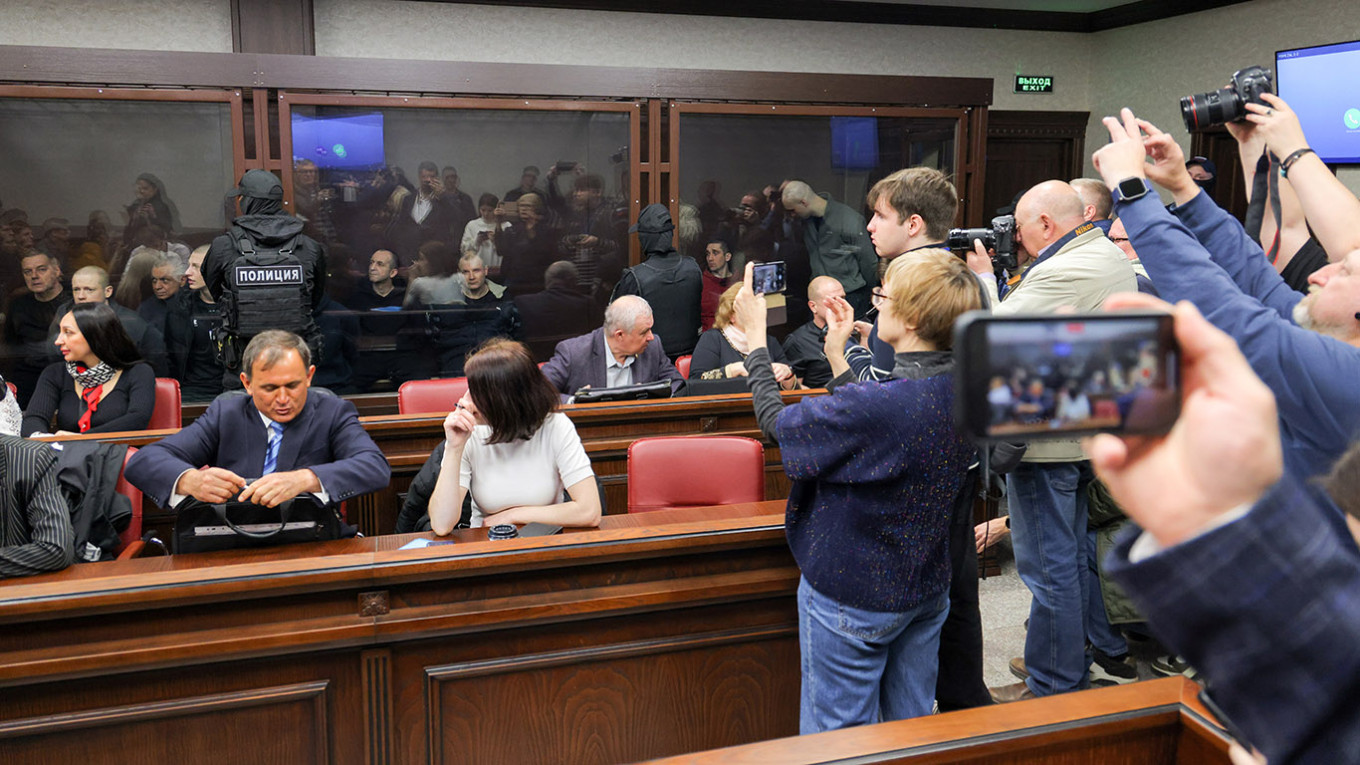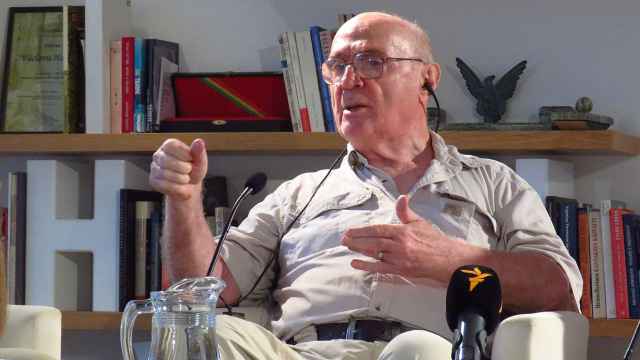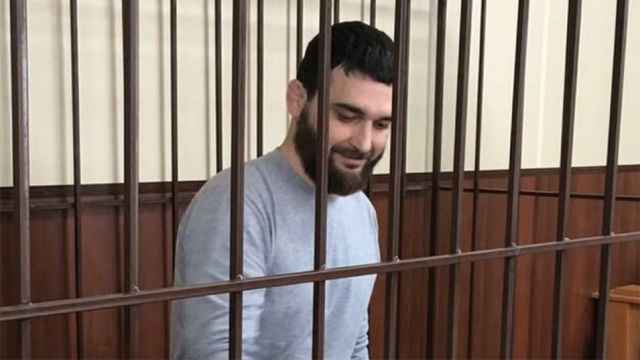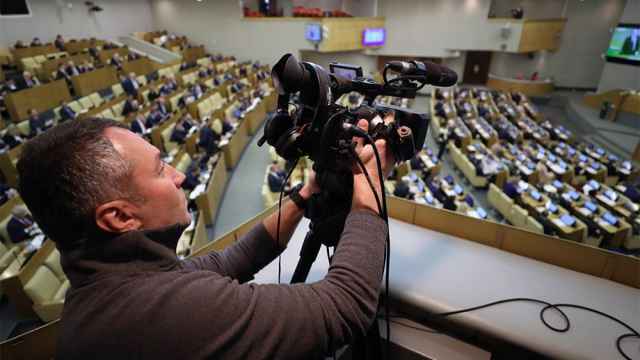My peers and I graduated from journalism school after the war in Ukraine had already begun. Out of the 30 people in my class, only one other graduate besides myself works in the field we studied. Even though she had supported Ukraine when the full-scale invasion began in 2022 and dreamed about continuing her education in Canada, she now works for the state-run RIA Novosti news agency.
We didn’t meet at our graduation. While my former classmates were celebrating in Moscow, I was waiting at the border of a new country — one that never became home to me.
I left Russia after the death of Alexei Navalny and completed my studies in exile. My hands never held my diploma from what was once considered the country’s best journalism school, my family didn’t see me in my graduation cap and I’m not in a single graduation photo.
That’s how my four years at the Higher School of Economics (HSE) ended. Four years, four stages of my country: lockdown, war, mobilization and the death of Alexei Navalny.
My studies ran parallel to the near-total collapse of press freedom in Russia. When I entered university in 2020, Russia ranked 149th in the World Press Freedom Index. Today, Russia sits at 171st out of 180 — an all-time low.
That puts Russia in the bottom 10, alongside countries like Nicaragua, North Korea, Syria and China — the country often referred to as the world’s largest prison for journalists.
When I applied, we could still write about the protests in Khabarovsk, a city in Russia’s Far East, and Navalny’s poisoning with Novichok. Back then, HSE still held on to the dying embers of academic freedom — although it was already firing professors for their political views.
But what do journalism faculties promise now instead of press freedom? They promise everything they can to distract young people from reality: the reality where reporters are killed, imprisoned or forced into exile. They’re offered courses in Reels production, influencer marketing, digital media dramaturgy and the subject of neuromedia, which trains students to create targeted content based on audience psychology.
It’s easy for universities to sell these flashy, media-themed packages and even easier to bury young people in them, especially those fresh out of high school.
Later, journalism departments frame the profession as a path to followers and money. At my alma mater, state TV anchor and propagandist Ernest Matskyavichyus lures prospective students to the Media Institute with promises of “big budgets” and the chance to “become a media outlet yourself.”
At the same time, HSE organizes discussions with VGTRK, Russia’s largest state-owned media holding, as well as state media “reporters” in Washington and Rome. But no one tells the 18-year-old applicants that these “journalists” serve just about any interest but that of the viewer.
“It’s great that students have the chance to learn from professionals working abroad,” says the mother of one HSE applicant. I can’t blame her — my mother would have said the same. But I find it repulsive that professors reinforce the image of the journalist as a servant of the Kremlin.
They pass that mindset on to new generations while steadily raising tuition fees. Today, a journalism degree from HSE costs 690,000 rubles (around $8,540) per year, compared to 512,000 rubles (around $6,330) from Moscow State University and 297,000 rubles (around $3,676) from St. Petersburg State University.
For the first time in the Reporters Without Borders index’s history, working conditions for journalists are rated as “bad” in half of the world’s countries. Media experts agree: it’s becoming increasingly difficult for journalists to make a living.
My peers are taking out loans to pay for their education. At HSE, they are also driven by the constant fear of slipping down the academic rankings. Doing so could put them at risk of losing their tuition discount, which can lower the cost of their education by up to 70%.
That’s why many of my classmates have chosen silence. When you’re born in an economically impoverished region, you dream of getting into a good university and seeing your bleak hometown only from a distance.
This is hard to understand for Europeans or Americans, but it’s easy to understand when no one in your family has an international passport.
In the Western tradition, press freedom is often framed as a struggle between journalists and the state.
But the problem also lies with dishonest journalism professors who help maintain the status quo. Each time they say “let’s avoid politics,” “pick a different topic” or “don’t get involved,” it tightens the grip of self-censorship in those who are supposed to enter the profession tomorrow. Year after year, more young people start to see these limits as normal and understanding that silence is a form of protection.
The war in Ukraine and military censorship laws split my education in half. “This is, of course, the clinical death of journalism inside the country,” our journalism lecturer told us at the time. The radio station he founded — Ekho Moskvy — was shuttered at the start of the war.
Then, he added: “Sometimes people come back from clinical death. When the spell is broken, you will be the resuscitators.”
A Message from The Moscow Times:
Dear readers,
We are facing unprecedented challenges. Russia's Prosecutor General's Office has designated The Moscow Times as an "undesirable" organization, criminalizing our work and putting our staff at risk of prosecution. This follows our earlier unjust labeling as a "foreign agent."
These actions are direct attempts to silence independent journalism in Russia. The authorities claim our work "discredits the decisions of the Russian leadership." We see things differently: we strive to provide accurate, unbiased reporting on Russia.
We, the journalists of The Moscow Times, refuse to be silenced. But to continue our work, we need your help.
Your support, no matter how small, makes a world of difference. If you can, please support us monthly starting from just $2. It's quick to set up, and every contribution makes a significant impact.
By supporting The Moscow Times, you're defending open, independent journalism in the face of repression. Thank you for standing with us.
Remind me later.






